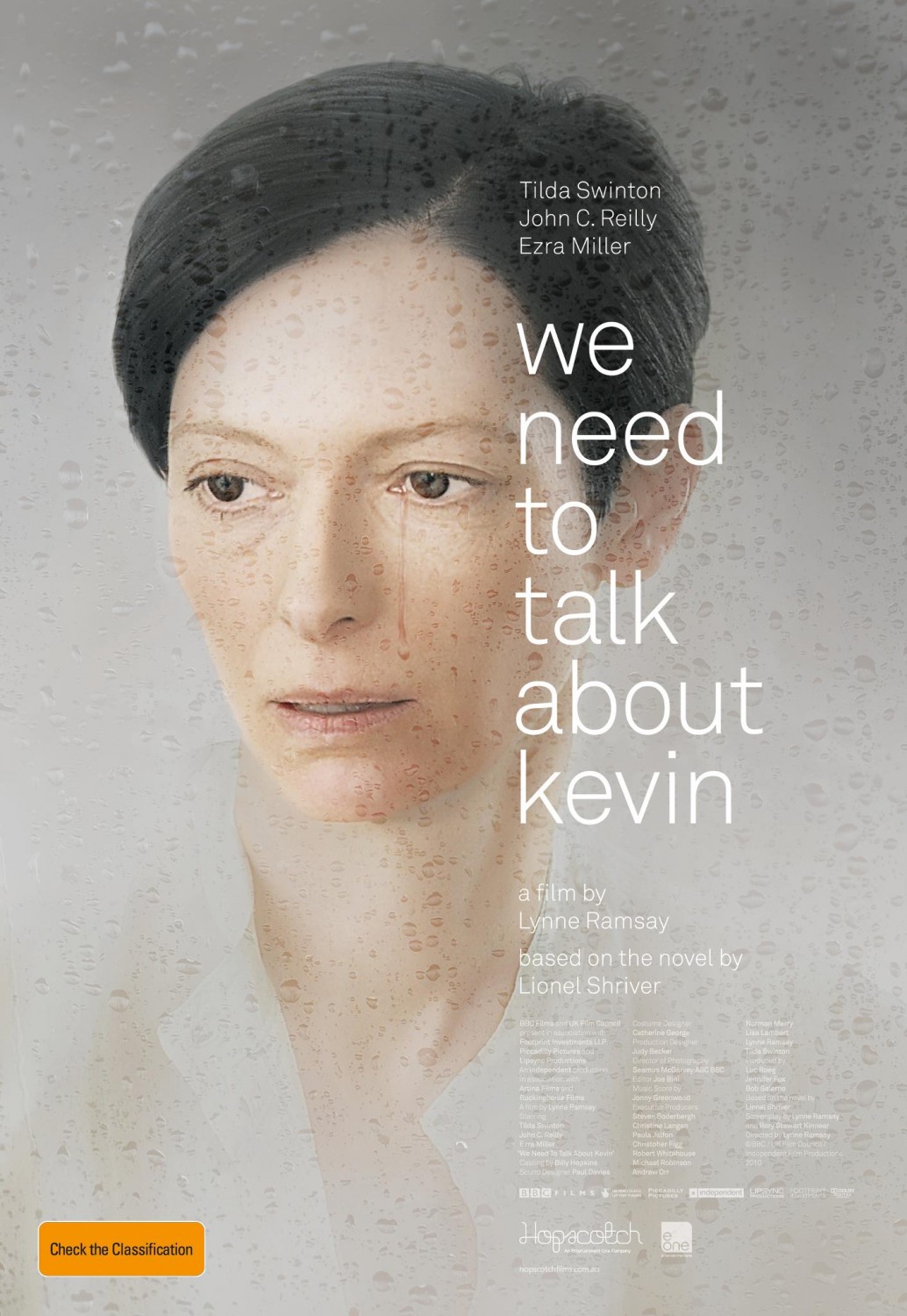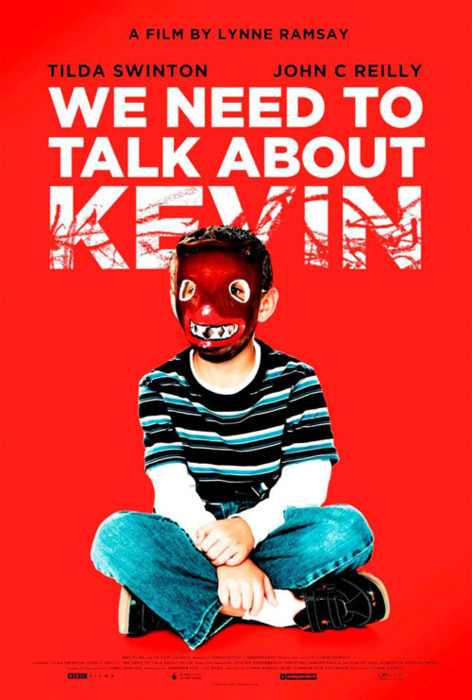


We are introduced to Kevin as a devilishly difficult infant, the product of a highly painful birth and a source of constant strife for Eva.

And when the child’s name (Prescott) is finally revealed at the climax of the film, we discover that the protagonist is neither Hitler, nor Mussolini nor Franco, but a metaphor for all three. Part of what makes The Childhood of a Leader so unnerving is that the audience knows that the main character will grow up to become a dictator, but it does not know which one. In contrast, Brady Corbet decided not to give his film’s antagonist a specific identity. In fact, after the release of both the book in 2002 and the film in 2011, the name “Kevin” plummeted in popularity for new-borns, reflecting the uneasiness even a name can instill. Starting out as a literary creation in the best-selling book by Lionel Shriver, Kevin was written in such a chilling and vivid manner that his persona quickly became an archetype associated with infamous real-life killers. Kevin Khatchadourian has almost taken a separate identity beyond his role as a fictional character. Based loosely on the short novel of the same name by Jean-Paul Sartre, The Childhood of a Leader focuses on a year in the life of a boy (Tom Sweet) growing up in 1919, during the political turmoil of the Treaty of Versailles. The film alternates between the future and the past, as Eva punishes herself by trying to remember the events that lead up to the creation of her monster, Kevin is portrayed in different stages of his life by Rock Duer, Jasper Newell and Ezra Miller. We Need to Talk About Kevin narrates the struggles of Eva Khatchadourian ( Tilda Swinton), a mother whose son perpetrated a school massacre in 1999. Lynne Ramsey’s We Need to Talk About Kevin and The Childhood of a Leader by Brady Corbet take this fear to an extreme, raising the question that when it comes to serial killers or dictators, who should we blame? The child, the parent or both? The two films focus on the maternal role and ask the viewer to consider whether mother knows best. As the saying goes, “little pitchers have big ears” and it is a parent’s nightmare to think that their actions, decisions, and habits could potentially have a negative influence on their child. In it, the main character Elisabet is forced to admit that she feels no love for her child and is frightened about the impact this animosity could have.

This speech, taken from Ingmar Bergman’s Persona, gives us a painful insight into the terrors of motherhood. “You looked with disgust and terror at your squealing baby and whispered: “Can’t you die soon? Can’t you die?” The boy screamed day and night. For just $3 a month you will have access to our full library of Audio content, plus three new uploads every week. This article is now available on Audio, written by Alex Jimenez Nimmo, and read by Audrie Roelf, exclusively for our Patreon supporters.


 0 kommentar(er)
0 kommentar(er)
